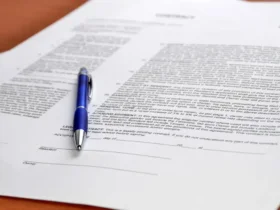Important: We updated this article in March 2023 to ensure all information below is both current and correct. State law outlines who receives Georgia workers’ compensation benefits and how the process works. If you were injured or got sick on the job in the Peach State, you should focus on feeling better ― not feeling anxious about the claims process.
Georgia Workers’ Compensation Eligibility
State law requires every employer with at least three employees to carry workers comp coverage. This applies equally to full-time and part-time employees beginning their first day at work. Find out more about how to qualify for workers’ comp benefits.
Important: Federal employees are not covered by state rules. Learn how to file a federal claim.
How to File Your Georgia Workers’ Compensation Claim
To qualify for Georgia workers’ compensation benefits, you must prove your injury or illness is work-related. According to the Georgia State Board of Workers’ Compensation (SBWC), you must follow these steps to apply for benefits:
1. Go to the emergency room first if your illness or injury requires immediate attention.
Tell the doctor your injury is work-related and be sure to keep copies of receipts and bills.
2. Notify your employer within 30 days.
Your employer must then notify their insurance company’s claims adjuster using Form WC-1.
Important: If you fail to report, then you may invalidate your workers’ compensation claim.
3. Choose an authorized doctor to treat your injury or illness.
You cannot choose your own doctor – instead, the insurer will choose one for you. Your employer should post a toll-free number where you can contact an approved Georgia Workers’ Compensation Managed Care Organization 24/7. If not, ask your supervisor for the list of 6 doctors authorized to treat you under your employer’s insurance policy.
Important: See what a Georgia workers’ compensation doctor can do for you.
4. Fill out and submit Form WC-14 to the SWBC.
You must complete this form in order to start your claim.
Important: Keep a copy for your records and provide your employer with a copy, too.
5. Wait for a decision.
You should get your first check within 21 days from your first missed work shift. You must miss 7 days at work before qualifying for lost wage payments. If you’re out for 21 consecutive days, then that first week’s lost wages should be covered, too.
Important: You’re less likely to be approved when you have a preexisting health condition similar to your current injury or illness.
6. Take action if your claim’s denied.
You have one year from the accident date to appeal. Request a hearing before the Board and they’ll schedule it within 60 days of your incident date.
Important: We strongly recommend hiring a Georgia workers’ compensation lawyer to help you appeal.
This Employee Bill of Rights pamphlet explains more about the Georgia workers’ compensation program.
Georgia Workers’ Compensation Statistics
The Bureau of Labor Statistics (BLS) analyzes workers’ comp data on most U.S. states and territories. Georgia only provides certain workers’ comp data to the BLS. You can find more details in the SBWC’s annual report.
BLS data show that the total number of recordable cases in the Goober State decreased from 93,600 in 2018 to 75,611 during the height of the pandemic in 2020. The numbers then ticked back up in 2021 to 82,215. Employees missing work, transferring jobs or receiving restrictions also declined during that period, from 46,800 in 2017 to 31,500 in 2020, before rising slightly to 32,137 in 2021.
Free Legal Assistance With Your Georgia Workers’ Compensation Case
When you’re living with a work-related illness or injury, navigating the Georgia workers’ compensation system can make you feel even worse. And since your employer chooses the doctor who diagnoses your illness or injury, you may feel you won’t get fair treatment or compensation.
That’s why we recommend working with an experienced workers’ comp attorney for free, confidential claim assistance. These specialists typically work on a contingency basis. This means you won’t owe a fee unless you win a cash settlement. You only pay a reasonable, one-time fee when your case is successful.
Want free expert claim help? Click the button below to sign up for a free phone call during regular weekday business hours:
Get Your Free Benefits Evaluation
Margot Lester is the CEO of The Word Factory, a B2B & B2C content marketing agency that provides services for Fortune 100 brands, healthtech companies and SaaS developers. An award-winning business and brand journalist, she writes for daily and weekly newspapers and business journals, national magazines, in-flight publications and leading websites. Margot is also an in-demand writing coach and organizational communications trainer, helping individuals and teams write more effectively. Twitter/X: @word_factory LinkedIn: linkedin.com/in/margotlester.


















